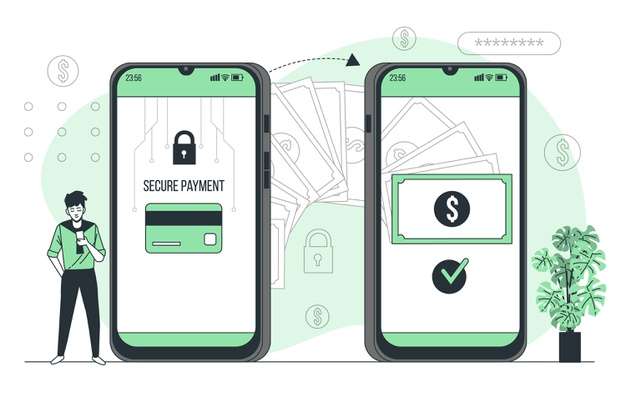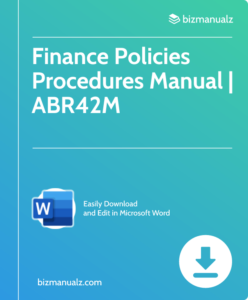What is a Mobile Wallet?

Mobile wallets is a new technology way to pay digitally. With just a few taps on your phone, they store financial information securely. No need for cash or credit cards – all your payment options in one place! These virtual wallets have empowered consumers and businesses alike, with quick and safe transactions. What is a mobile wallet?
Understanding a Mobile Wallet
The technology behind mobile wallets is powerful. They store personal details like bank accounts, credit card numbers and loyalty programs. This allows people to make payments through their smartphones with a simple tap or scan.
Businesses benefit from mobile wallets too. They save money on cash registers and card terminals. Plus, accounting processes are easy to keep up with, as these digital payments integrate into existing systems.
Major financial players have taken notice of this innovation. PayPal’s “One Touch” mobile wallet is popular for its ease and security.
Definition of a Mobile Wallet
A mobile wallet is a digital app which lets users store their money and make payments utilizing their smartphones or other mobile gadgets. No need for physical cash or cards! It’s secure and convenient.
NFC (Near Field Communication) tech helps mobile wallets communicate wirelessly with payment terminals at stores. This ensures that money-related info is protected as it gets transferred securely between the mobile device and payment terminal.
Plus, mobile wallets provide features like loyalty cards, coupons, and ticketing services. We can access these features inside the app, eliminating the need to carry physical copies.
An example: John, a passionate traveler, found himself stranded in a foreign country after losing his wallet with all his cards and cash. Luckily, before the trip he had installed a mobile wallet on his phone. With a few taps, he could send funds from his bank account to his mobile wallet. This allowed him to book accommodation, buy food, and pay for other expenses until help arrived. The convenience and security his mobile wallet provided saved him from major stress.
Technology is advancing rapidly. Mobile wallets are now an integral part of our daily lives, offering convenience, security, and flexibility. They have changed the way we manage our finances and paved the way for a cashless society where we can make payments using our fingertips.
Importance of Mobile Wallets in Accounting
Mobile wallets are important for accounting. They streamline finance transactions as paper-based bookkeeping is becoming outdated.
- Secure and efficient financial record management, tracking of expenses, and account reconciliations are possible with mobile wallets.
- Businesses can quickly send and receive payments, without the need for manual processes.
- Real-time access to financial data helps accountants make decisions quickly.
- Automatic categorization of expenses and integration with accounting software also makes recording and reporting simpler.
In terms of security, mobile wallets eliminate the risk of theft or fraudulent transactions. Encryption technology and biometric authentication methods also protect sensitive info. Before selecting a mobile wallet, look at compatibility, transaction fees, and security features. Pick a dependable provider with great customer support and regular updates.
Examples of Mobile Wallets in Accounting
Mobile wallets are becoming super popular for accounting. They let you securely store and manage financial info, making transactions simpler and faster. Here are a few used in accounting:
- Apple Pay: Use your Apple device like an iPhone, iPad, or Mac to make payments. It stores credit card info, so you can pay online and in stores.
- Google Pay: This mobile wallet uses Android devices to pay for goods and services quickly and securely.
- PayPal: An online payment platform, it also has a mobile wallet feature. Link your credit cards or bank accounts to your PayPal account and pay from your phone.
- Samsung Pay: Designed for Samsung Galaxy devices, it makes paying easy at participating stores. Just tap your device on the payment terminal.
Mobile wallets make accounting easier by streamlining payments, reducing reliance on cards, and minimizing data entry errors. Plus, you can track transaction histories, categorize expenses, and manage receipts for financial record keeping. To get the most out of them:
- Review transaction histories regularly.
- Utilize expense categorization.
- Take advantage of extra security features.
- Update the app for latest security patches and features.
- Consider integrating with accounting software.
Step-by-Step Guide on Setting up a Mobile Wallet for Accounting Purposes
To manage finances with ease, setting up a mobile wallet is a must! Here’s a guide that’ll help you on your way:
- Choose the right mobile wallet: Look for a reliable provider offering features for accounting. Think security, compatibility with your accounting software, and user-friendliness.
- Download + install the app: Visit the website or app store to download it. Follow the instructions to install on your smartphone or tablet.
- Create an account: Open the app and select ‘create new’. Fill in the details including business info and banking. Set a strong password for extra protection.
- Link bank accounts + credit cards: To use the mobile wallet, link business bank accounts and credit cards. This will automate transactions, track expenses, and generate reports.
Note: Each mobile wallet may have special steps. But following these general steps should get you set up for accounting purposes.
Pro Tip: Update the mobile wallet regularly to take advantage of any security measures and improved performance from the provider.
Tips for Using Mobile Wallets Effectively in Accounting
Mobile wallets can be great for accounting. Here’s how to make the most of them:
- Track transactions in real-time.
- Integrate with accounting software.
- Enable secure authentication.
- Categorize expenses for easier reporting.
- Set spending limits.
- Reconcile regularly.
Remember – not all vendors accept mobile wallet payments. So, have other payment methods ready as a backup. Don’t miss out on the benefits of mobile wallets for accounting. Streamline processes and gain control of finances. Get organized, save time, and enjoy peace of mind knowing you’re using the latest tech!
Potential Challenges and Risks of Using Mobile Wallets in Accounting
The digital age has seen mobile wallets become super popular, offering convenience and a quick way of managing financial transactions. Yet, there are some challenges and risks involved with using these wallets for accounting that must be thought-through.
- Security risk: Mobile wallets store sensitive info, which makes them a hot target for hackers. If a wallet is breached, it could lead to unauthorized access to accounts and financial loss.
- Accuracy and reliability: Transactions made through mobile wallets may not always be recorded correctly or be synced with accounting software. This can cause errors in financial records.
- Audit trail complex: Tracing transactions made through mobile wallets is tricky as they use many platforms, such as apps and payment processors. This makes it hard to trace the source or destination of funds accurately.
Using mobile wallets in accounting brings benefits, like convenience, efficiency, and faster processing times. However, businesses must use robust security and have proper integration with accounting systems to prevent risks.
An example: a small business owner began using mobile wallets for daily transactions, thinking it would make payment processes easier. But soon, their whole financial database was hacked. This highlighted the importance of updating security protocols and investing in good cybersecurity when handling accounting with mobile wallets.
Mobile Wallet
To conclude, a mobile wallet is a digital way to store and oversee financial details on cell phones. It offers a safe and easy way to pay and deal with transactions. No need for physical wallets or cash. It’s simpler to buy stuff on the go.
Features of a mobile wallet involve keeping payment card info, loyalty cards, and vouchers. Money can also be shifted between accounts, peer-to-peer payments, and digital tickets or boarding passes. Smartphones and tech are getting more popular, making mobile wallets a daily necessity.
An exciting detail of mobile wallets is NFC technology. It enables contactless payments. Tap your phone against a compatible payment terminal and the transaction is secure. This tech has reformed how we pay, making it faster and more efficient.
Statista says the mobile wallet market size is likely to reach $3 trillion by 2024. This shows that customers worldwide are accepting and adopting mobile wallets.
Frequently Asked Questions
 1. What is a mobile wallet?
1. What is a mobile wallet?
A mobile wallet is a digital payment system that allows users to store their debit card, credit card, or bank account information securely on their mobile devices. It enables users to make payments for goods and services using their smartphones, tablets, or smartwatches.
2. How does a mobile wallet work?
A mobile wallet uses Near Field Communication (NFC) technology or QR codes to facilitate contactless payments. When making a payment, the mobile wallet securely stores the user’s payment details and communicates with the merchant’s payment terminal to complete the transaction.
3. What are the advantages of using a mobile wallet?
Using a mobile wallet offers several advantages, such as convenience, speed, and enhanced security. It eliminates the need to carry physical wallets or cards, allows for quick and hassle-free payments, and provides additional layers of encryption and authentication to protect user information.
4. Can a mobile wallet be linked to multiple bank accounts?
Yes, depending on the mobile wallet provider, users can link multiple bank accounts or cards to their mobile wallets. This enables them to choose a preferred payment source for different transactions without carrying multiple physical cards.
5. Are mobile wallets widely accepted?
Mobile wallets have gained significant traction in recent years, and many retailers, restaurants, and service providers now accept payments through mobile wallets. However, acceptance may vary depending on the region and the merchant’s payment infrastructure.
6. Can mobile wallets be used for budgeting and expense tracking?
Some mobile wallets offer additional features like budgeting tools, spending categorization, and expense tracking. These features allow users to monitor their spending habits, set limits, and gain insights into their financial activities.

















Leave a Reply